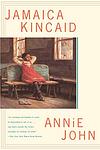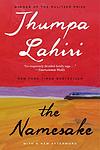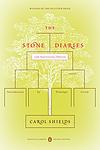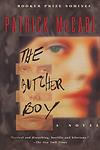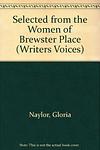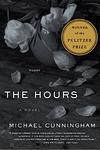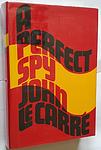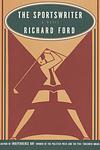The Greatest "Fiction, Drama" Books Since 1980
Click to learn how this list is calculated.
This list represents a comprehensive and trusted collection of the greatest books. Developed through a specialized algorithm, it brings together 300 'best of' book lists to form a definitive guide to the world's most acclaimed books. For those interested in how these books are chosen, additional details can be found on the rankings page.
Genres
Drama is a genre of literature that typically deals with serious and emotional themes, often exploring the complexities of human relationships and the struggles individuals face in their lives. These books often feature intense character development and intricate plotlines, delving into the depths of human experience and the challenges of navigating the world around us. From family dramas to political intrigue, the drama genre encompasses a wide range of stories that aim to captivate readers with their raw and powerful storytelling.
Countries
Date Range
Reading Statistics
Click the button below to see how many of these books you've read!
Download
If you're interested in downloading this list as a CSV file for use in a spreadsheet application, you can easily do so by clicking the button below. Please note that to ensure a manageable file size and faster download, the CSV will include details for only the first 500 books.
Download-
26. A Thousand Acres by Jane Smiley
This novel is a modern retelling of Shakespeare's King Lear, set on a 1000-acre farm in Iowa. The story revolves around three daughters whose father decides to divide his land among them. The eldest two daughters are compliant with their father's decision, but the youngest daughter objects, leading to familial discord. The novel delves into themes of power, jealousy, and the dark secrets that can tear a family apart.
-
27. The Kite Runner by Khaled Hosseini
This novel is a powerful story set against the backdrop of tumultuous events in Afghanistan, from the fall of the monarchy through the Soviet invasion and the rise of the Taliban regime. It follows the life of a wealthy boy and his best friend, a servant's son, their shared love for kite flying, and a terrible incident that tears their lives apart. The narrative explores themes of guilt, betrayal and redemption as the protagonist, now an adult living in America, is called back to his war-torn homeland to right the wrongs of his past.
-
28. The Reader by Bernhard Schlink
"The Reader" is a poignant narrative centered around a young German boy's complex relationship with an older woman, who later turns out to be a former Auschwitz guard. Their relationship begins with her teaching him to read, but takes a drastic turn when she disappears, only to reemerge on trial for war crimes. The novel explores themes of guilt, shame, and redemption, as the boy, now a law student, grapples with his feelings for a woman he once loved, but whose past actions he cannot reconcile with.
-
29. The Bone People by Keri Hulme
"The Bone People" is a complex, emotional novel that explores the lives of three characters - a reclusive artist, a young mute boy, and his adoptive father - in New Zealand. The narrative delves into themes such as Maori culture, love, violence, and isolation while showcasing the struggle of these individuals as they try to form a family unit despite their personal traumas and societal pressures. The book's unique blend of prose and poetry, along with its blend of English and Maori language, adds to its depth and richness.
-
30. Obasan by Joy Kogawa
The book is a semi-autobiographical novel that tells the story of a Japanese-Canadian woman named Naomi, who reflects on her experiences during World War II. As a child, Naomi was forced into internment along with thousands of other Japanese-Canadians, following the bombing of Pearl Harbor. The narrative explores the themes of racism, identity, silence, and the power of memory, as Naomi grapples with the trauma of her past and the impact of her cultural heritage on her present life.
-
31. Memoirs of a Geisha by Arthur Golden
This novel is a historical fiction that provides a rich exploration of life in Japan before World War II, through the eyes of a young girl sold into the geisha lifestyle. The protagonist is trained in the arts of entertaining wealthy and powerful men, navigating a world of jealousy, love, and social politics. Her journey is one of resilience and survival as she strives to find personal happiness in a society that views her as a commodity.
-
32. The Line of Beauty by Alan Hollinghurst
Set in the 1980s during the era of Margaret Thatcher's conservative government in Britain, this novel follows the life of a young gay man named Nick Guest. Coming from a middle-class background, he moves into the home of his wealthy friend's family and becomes infatuated with the opulence and power of the upper class. As he navigates his way through this new world, he also explores his sexuality, all while dealing with the societal and political implications of the AIDS crisis.
-
33. Annie John by Jamaica Kincaid
The novel centers around the coming-of-age story of the protagonist, Annie John, in Antigua. Throughout her childhood and adolescence, she grapples with her complex relationship with her mother, her self-identity, and the colonial influence of the British on her island home. As she matures, her once close bond with her mother becomes strained, and she struggles with feelings of separation and independence. The narrative explores themes of colonialism, gender, and the complexities of mother-daughter relationships.
-
34. So Long a Letter by Mariama Bâ
"So Long a Letter" is an epistolary novel that explores the life of a recently widowed woman in Senegal. Throughout the story, she reflects on her life, her marriage, her husband's second, younger wife, and the status of women in Senegalese society. The book delves into themes of polygamy, friendship, and the struggle for women's rights in a predominantly patriarchal society. It is a poignant examination of the personal and cultural conflicts faced by women in post-colonial Africa.
-
35. The Namesake by Jhumpa Lahiri
The novel tells the story of Gogol Ganguli, a second-generation Indian-American, who struggles with his unique name and his dual cultural identity. Born to immigrant parents from Kolkata, India, Gogol is named after the famous Russian author, Nikolai Gogol, a decision that shapes his life in unexpected ways. As he grows up, he finds himself torn between his parents' traditional Indian values and his desire to fit into mainstream American society. This internal conflict is further complicated by his relationships with women of different cultural backgrounds. The book explores themes of identity, cultural assimilation, and the immigrant experience.
-
36. London Fields by Martin Amis
The novel is a darkly comic, murder mystery set in London at the end of the 20th century. The story follows three main characters: a terminally ill American writer, a petty criminal, and a beautiful but doomed woman who predicts her own murder but not the murderer. The narrative is filled with satirical social commentary, exploring themes of love, lust, greed, and deception.
-
37. The Cider House Rules by John Irving
This novel tells the story of Dr. Wilbur Larch—saint and obstetrician, founder and director of the orphanage in the town of St. Cloud's, Maine, and a man of rare compassion and an addiction to ether. Dr. Larch loves all his orphans, especially Homer Wells, who is never adopted and becomes his invaluable apprentice. As Homer comes of age, he must leave the only home he's ever known to explore the world outside, a world filled with temptations and moral dilemmas, from the struggle over abortion to the question of what constitutes a family.
-
38. The Stone Diaries by Carol Shields
The novel follows the life of Daisy Goodwill Flett, a seemingly ordinary woman, from her birth in Canada in 1905 to her death. It explores her experiences as a mother, wife, and widow, as well as her work as a gardener and her later years as a columnist. The book is unique in that it is written in a variety of styles including letters, diary entries, and third-person narrative, and it explores themes of identity, love, and the often overlooked lives of women.
-
39. The Piano Teacher by Elfriede Jelinek
"The Piano Teacher" is a dark exploration of power dynamics, sexuality, and repression. The story revolves around a piano teacher at a prestigious music school in Vienna who lives with her overbearing mother in a state of emotional and sexual repression. Her life takes a turn when she becomes sexually involved with a young, self-assured student. The relationship, marked by sadomasochistic games and emotional manipulation, spirals out of control, leading to a tragic end. The book is a profound critique of bourgeois values and the oppressive structures of society.
-
40. The Lovely Bones by Alice Sebold
A teenage girl is brutally murdered in her small town, and from her new home in heaven, she watches over her family and friends as they struggle to cope with her loss. She also keeps an eye on her killer, hoping that he will eventually be brought to justice. Through her observations, she explores the complexities of human relationships, the ripple effects of her death, and the concept of moving on while still holding onto memories.
-
41. House with the Blind Glass Windows by Herbjørg Wassmo
"House with the Blind Glass Windows" is a poignant tale of a young girl growing up in Norway during the 1950s. The narrative explores her struggles with family secrets, abuse, and the oppressive nature of her small, rural community. The protagonist's journey towards understanding and overcoming her traumatic past forms the crux of the story, which is set against the backdrop of post-war Europe.
-
42. The Butcher Boy by Patrick McCabe
The Butcher Boy is a dark and disturbing tale set in small-town Ireland, following the life of a troubled young boy who descends into madness and violence. The protagonist's life is filled with neglect, abuse and mental health issues, and his increasingly erratic behavior and gruesome fantasies lead him down a path of horrific actions. The novel provides a stark exploration of the effects of societal neglect and the failure of mental health systems.
-
43. The Women of Brewster Place by Gloria Naylor
The book is a poignant narrative that weaves together the lives of seven African American women living in a dilapidated urban housing development. Through a series of interconnected stories, it explores the struggles, hopes, and bonds of these women as they confront issues of racism, poverty, and sexism. The narrative delves into each woman's personal journey, revealing the resilience and solidarity that emerge within this close-knit community as they navigate the challenges of life in an environment that seems designed to suppress their voices and dreams.
-
44. The Hours by Michael Cunningham
The novel is a reimagining of Virginia Woolf's "Mrs. Dalloway" and follows three women from different time periods, each of whom are profoundly affected by Woolf's work. The narrative alternates between Virginia Woolf as she writes "Mrs. Dalloway" in 1923, a 1950s housewife who is reading the novel, and a contemporary woman who is essentially living the life of the titular character. These three storylines eventually converge in a powerful exploration of mental illness, sexuality, and the transcendent power of literature.
-
45. My Brilliant Friend by Elena Ferrante
This novel tells the story of two friends, Elena and Lila, growing up in a poor neighborhood in Naples, Italy in the 1950s. Their intense, complicated friendship is marked by competition, mutual respect, and deep affection. As they navigate the challenges of adolescence, including family drama, academic struggles, and romantic entanglements, their bond is tested and transformed. The narrative explores themes of female friendship, social class, education, and the struggle for personal autonomy in a patriarchal society.
-
46. Clear Light of Day by Anita Desai
"Clear Light of Day" is a novel set in Old Delhi, which explores the dynamics of the Das family. The story shifts back and forth in time, reflecting on the lives of siblings Bim, Raja, Baba, and Tara, and their relationships with each other and their aunts. The narrative delves into themes of memory, time, and decay, as well as the political upheaval of the Partition of India. The novel is a poignant study of family relationships, personal change, and loss.
-
47. A Time To Kill by John Grisham
In a racially charged courtroom drama set in the Deep South, a young, white attorney takes on a controversial case defending a black father who takes the law into his own hands after his ten-year-old daughter is brutally assaulted by two white men. As the lawyer struggles against personal threats, social outrage, and political pressure, the town is torn apart by violence and prejudice, forcing its inhabitants to confront their own beliefs about justice, equality, and retribution. The narrative weaves through themes of racial tension, legal ethics, and the quest for vengeance, culminating in a tense and morally complex trial that puts the entire community's values on trial.
-
48. A Perfect Spy by John le Carré
This espionage novel follows the life of Magnus Pym, a high-ranking British intelligence officer who disappears after attending his father's funeral, causing a massive manhunt. As the intelligence service scrambles to find him, the narrative dives into Pym's past, revealing his complex relationship with his conman father and his recruitment into the world of espionage. The story is a complex exploration of betrayal, identity, and the blurry line between loyalty and deception.
-
49. Small Island by Andrea Levy
"Small Island" is a historical novel that explores the intertwined histories of Jamaica and the UK, as well as the themes of race, empire, and migration. The story is set in 1948 and is told from four different perspectives: two Jamaican immigrants, Hortense and Gilbert, who move to England after World War II, and an English couple, Queenie and Bernard. The narrative explores the racial tension, discrimination, and culture shock that the immigrants face in their new home, while also delving into the complexities of war, identity, and the British Empire.
-
50. The Sportswriter by Richard Ford
This novel explores the life of a suburban New Jersey man who makes his living as a sportswriter. After experiencing the death of his son and subsequent divorce, he attempts to maintain a positive outlook on life and keep his personal despair at bay. The book delves into his relationships, encounters, and introspections during a transformative Easter weekend, providing a deep analysis of his character and his struggle to find meaning and purpose in the face of tragedy.
Reading Statistics
Click the button below to see how many of these books you've read!
Download
If you're interested in downloading this list as a CSV file for use in a spreadsheet application, you can easily do so by clicking the button below. Please note that to ensure a manageable file size and faster download, the CSV will include details for only the first 500 books.
Download






